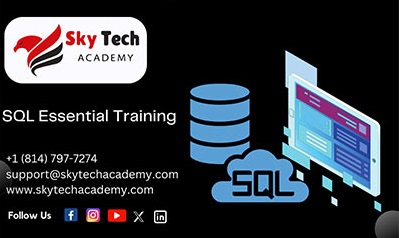SQL Essential Training Overview
The SQL Essential Training is designed for individuals looking to gain a solid foundation in Structured Query Language (SQL), the standard language for managing and manipulating relational databases. SQL is an essential skill for data analysts, developers, database administrators, and anyone involved in working with databases. This training covers the key SQL concepts and commands needed to perform tasks such as querying databases, managing data, and performing complex operations on large datasets. Throughout the course, you will learn to write SQL queries, filter and sort data, join tables, aggregate data, and modify database structures. The training also introduces advanced topics such as subqueries, indexes, views, and stored procedures. By working through real-world examples and exercises, you will gain hands-on experience in retrieving, updating, and organizing data to gain insights and make informed decisions.





